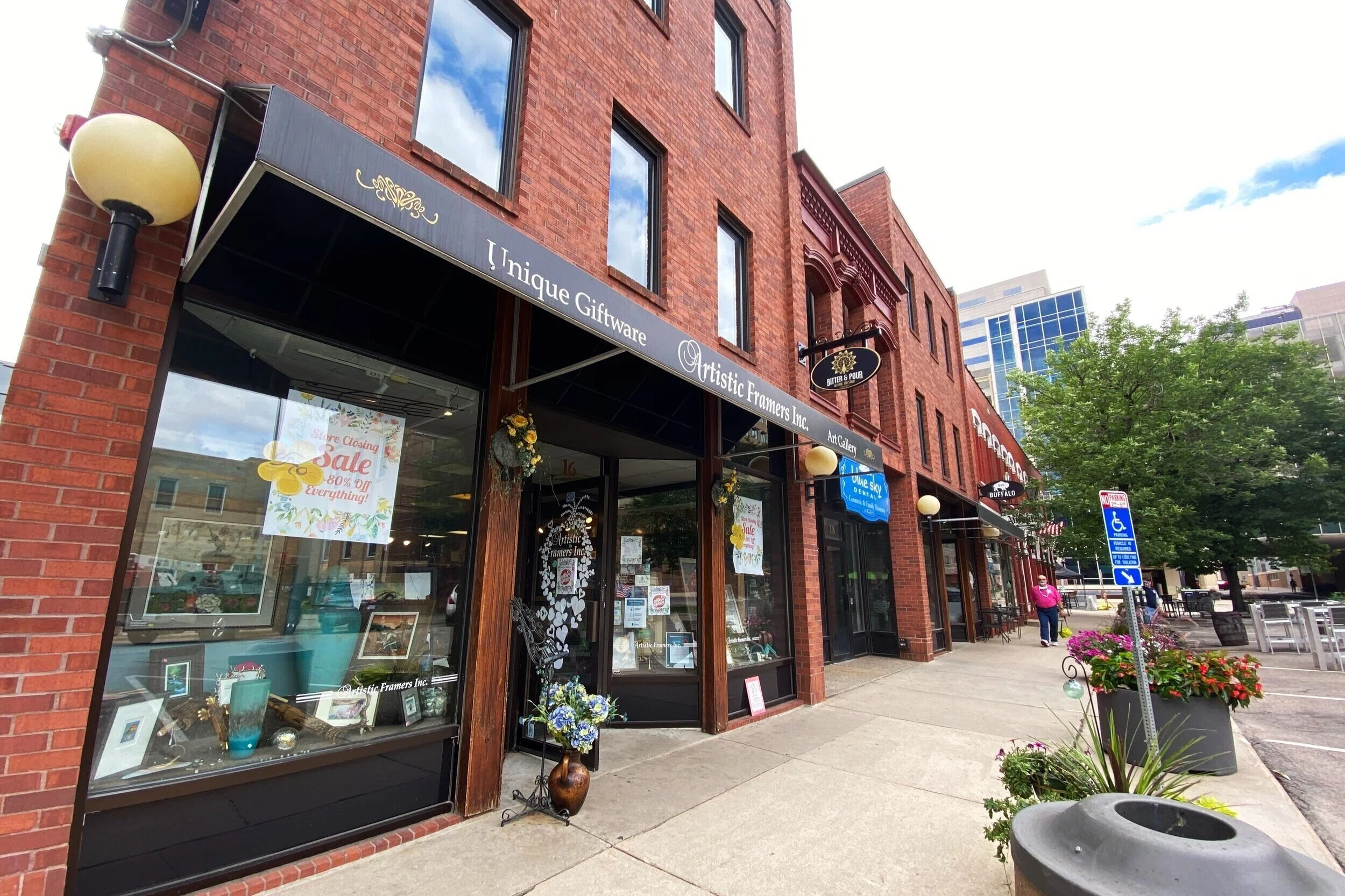Here is how Rochester plans to spend $5.1 million in federal stimulus money
The City of Rochester is putting $1 million in federal stimulus funding toward supporting small businesses affected by the pandemic.
The program — the details of which are still being worked out — is part of a larger $5.1 million spending plan approved Monday by the city council.
The funding comes from the $2.2 trillion CARES Act package passed by Congress back in March. Of that stimulus money, Minnesota cities and counties are set to receive a sum of $853 million. Rochester’s share is $8.8 million, $3.7 million of which has already been allocated to cover pandemic-induced expenses occurred over the past few months.
The remaining funding, as authorized by the council this afternoon, will go toward three main categories: ‘Support for People,’ ‘Public Service Impact,’ and ‘Economic Recovery.’ Notable expenditures include:
$400,000 to support nonprofit partners in meeting the needs of residents facing economic challenges brought on by the pandemic. Examples include assisting with food and housing stability.
$400,000 to help the Day Center transition from its temporary location at the Mayo Civic Center to the Salvation Army.
$250,000 to cover ‘extraordinary election costs associated with social distancing at polling locations and ensuring the necessary pool of election judges.’
$750,000 to develop a Rochester Conservation Corp. This initiative will focus on hiring individuals who may be having difficulty finding employment, and putting them to work planting trees, removing invasive specifies, and cleaning up city parks.
$500,000 to administer grants providing financial relief for businesses burdened by city licensing fees.
Small business program
The biggest program — representing about a fifth of the money set aside Monday — is one aimed at incentivizing customers to shop local, particularly at small businesses struggling to stay afloat.
The $1 million program has not been finalized, though council members and the mayor did spend time Monday advising staff on what priorities the city should consider as it drafts the framework of the initiative.
Recommendations included requiring that businesses are locally-owned and that they have adopted the safety standards outlined in the Rochester Ready pledge (a partnership between the city, Mayo Clinic and others).
Mayor Kim Norton suggested there should also be a specific focus on businesses that have been left out of previous funding programs.
“We [want to] make sure we are targeting some new businesses, and businesses that maybe didn’t get [Paycheck Protection Program] or didn’t get our original loans, and that we’re helping some different businesses, even some very, very small ones that may be downtown,” said Norton.
Speaking before the council, Deputy City Administrator Aaron Parrish said there is agreement, too, among staff that there should be criteria ensuring the funds are targeted toward small businesses. He noted that not all businesses in the area have been affected equally by the pandemic.
“It’s been Black Friday for Menards for three months, and they probably do not need the help; whereas others have been much more impacted,” said Parrish. “So, we do need to find ways to make sure that these funds get to businesses that have specifically been impacted [by the pandemic].”
A timeline on the program has not been set. However, both Parrish and Council Member Mark Bilderback emphasized the importance of getting the funds to businesses as quickly as possible.
“If we drag this out to October or later, a lot of these businesses may cease to exist,” said Bilderback, whose Fourth Ward includes downtown. “The pain is real, and the businesses in the downtown area have suffered greatly, as well as they have all throughout Rochester.”
Debate among the council
One of the main points of discussion Monday was whether to support the $750,000 conservation corp program.
Council President Randy Staver joined Council Member Shaun Palmer in questioning whether the money could be better spent on programs with direct links to the pandemic. Staver also took issue with a $100,000 outreach program aimed at assisting 'diverse populations disproportionately impacted by Covid,’ along with another $250,000 line item expense that would go toward a neighborhood arts program.
“They just don’t pass the sniff test for me as something that were expenditures caused due to the health emergency,” said Staver.
Staver wound up being the only nay vote on the final measure. Other council members, including Ward 1’s Patrick Keane, noted the immediate impact the conservation corp could have.
“To me, I am reading those much more as jobs programs, and ways of getting things happening in the community quickly,” said Keane. “And I think those are good sorts of projects to do that on.”
Prior to the final vote, there was one amendment attached to the measure. That came from Ward 3’s Nick Campion. He introduced a revision to the spending plan to reallocate $250,000 that was set to go to the Mayo Civic Center and instead add it to the small business incentive program. The amendment passed 5-2 and was ultimately included in the final motion. (Palmer and Keane voted nay on the amendment only.)
“I think it makes perfect sense to shift the money away from the convention business, which, frankly, everyone I know has been told, ‘do not plan convention travel for 2020,’ ” said Campion.
Moving forward, Parrish said he plans to provide regular updates to the council on how the programs evolve, and whether at any point funds need to be reprioritized. Additionally, per federal guidelines, all contracts over $50,000 will be required to come back before the council for review.
Parrish said the city will also coordinate with Olmsted County officials, which on Tuesday are set to discuss how they plan to distribute the county’s $19 million share of federal funding.
Sean Baker is a Rochester journalist and the founder of Med City Beat.








